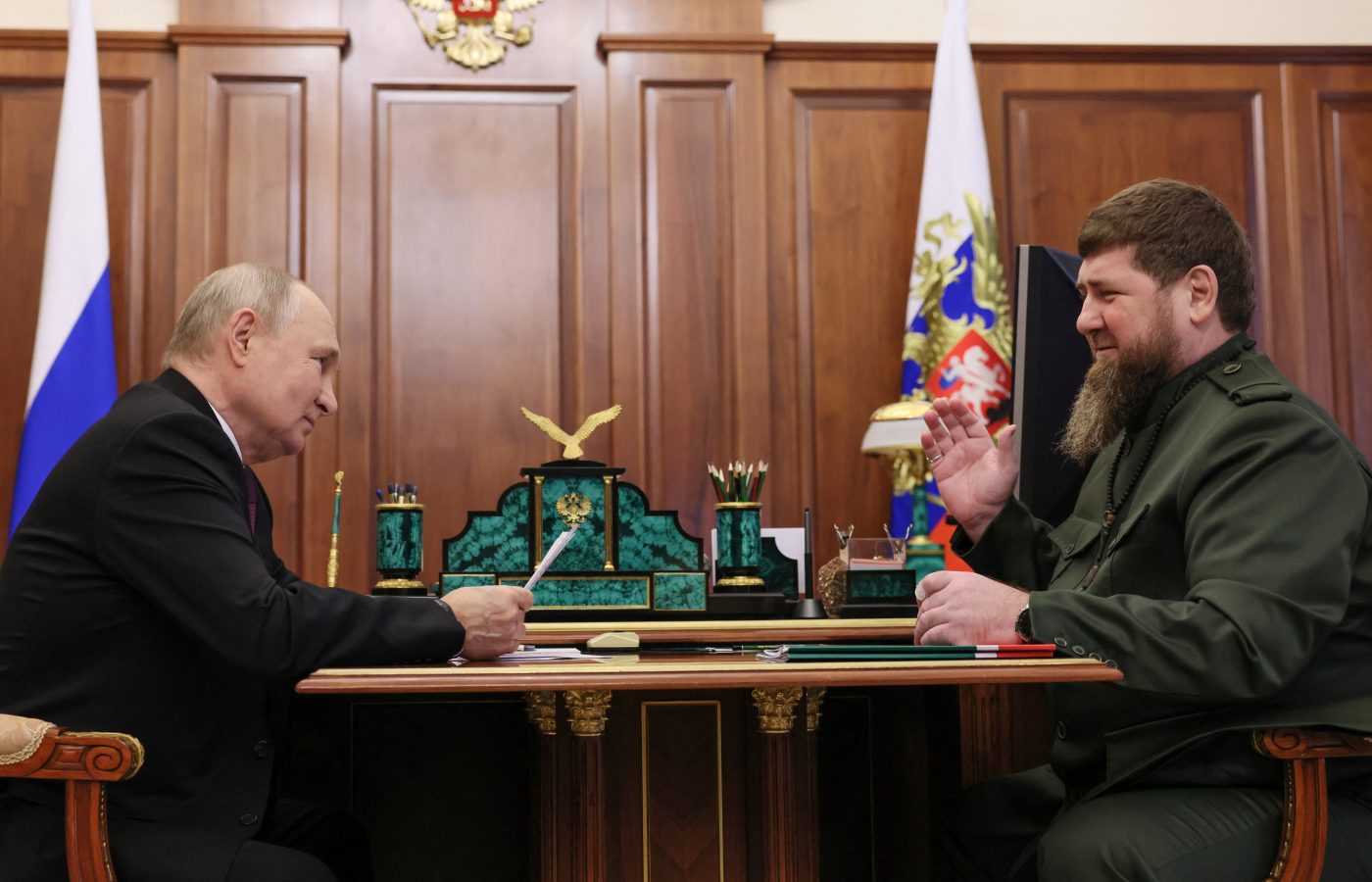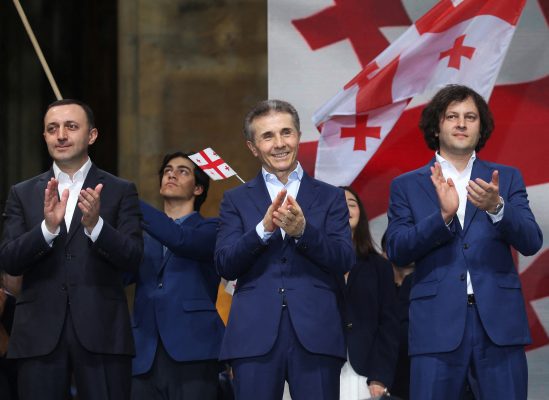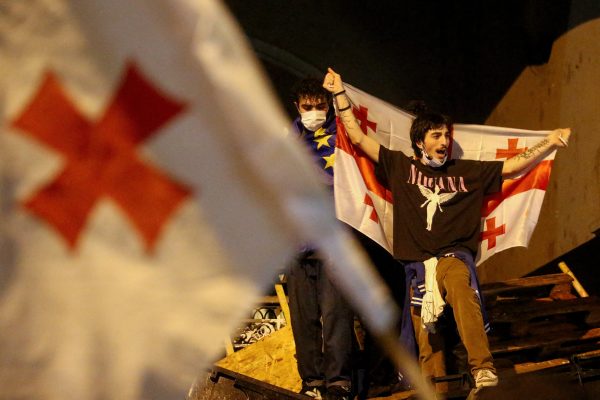One does not have to be a believer in a literal afterlife to speculate about how Vladimir Putin and Ramzan Kadyrov will leave this world for the next, and what reception they might find there.
Both men take immense precautions to avoid assassination—a fate they have readily inflicted on their rivals, foes, and critics. But they cannot fight time itself. Putin’s puffy face and frail, tense manner give rise to abundant speculation about his health and the excessive medication (steroids, some suspect) that he may be resorting to. Kadyrov is, according to seemingly informed sources, suffering from a terminal disease of the pancreas. A video that purported to show a vigorous gym workout looked staged.
Both leaders also represent a paradox. They have distorted and misruled their countries, at colossal human cost, amid grotesque self-enrichment. Yet they have presided over something unique: uninterrupted periods of (by the dismal standards of the past) stability and prosperity. Chechens and Russians may privately despise their leaders, but few want to return to the 1990s.
That political dividend was real. But it is eroding as the months march past. Each man’s decline will influence the other’s fate.
For Putin, Kadyrov’s demise would be a huge political problem. The Russian president rose to power on the back of a public panic about terrorist attacks in 1999 that were blamed on Chechen separatists but, in all likelihood, staged by the security services. His threat to “wipe them out, even in the outhouse” exemplified the ex-KGB man’s macho approach. Tarring the Chechens as Islamists enabled Putin to make common cause with the United States after the 9/11 terrorist attacks.
Inside Russia, installing the turncoat Kadyrov clan (first the father, assassinated in 2004, and then his son Ramzan) helped crush separatist resistance there. The resulting repressive climate was a harbinger of what lay in store for the rest of Russia. In short, Chechnya, once a running sore in Russia’s body politic, became a pillar of the Putin regime, providing criminal, military, and other services. The Kadyrovtsy militia played an important role in the Ukraine war.
That bargain had its downsides. Kadyrov’s extravagant public pronouncements, pseudo-Islamist social repression, personal brutality, and outlandish corruption caused outrage even in Russia’s crippled political system. And the air of menace that hung over Chechnya stretched beyond its borders. Just as the Russian constitution did not apply in Chechnya, its rules also did not apply to Kadyrov’s activity in the rest of Russia. Even Chechens with close ties to the FSB security service were targeted successfully by the Kadyrov regime as it consolidated its grip on power and money. The unexplained assassination of Boris Nemtsov in the heart of Moscow by Chechen hitmen in 2015—whoever actually ordered the hit—underlined the lawlessness that was seeping from the mountainous republic into the rest of Russia.
If Kadyrov goes, the monster he has nurtured is unchained. A fight for the succession will be destabilising. Whoever comes out on top will want to strike a new bargain with the Kremlin — and one that will be bitterly resisted by other elements of Russia’s power structures.
For Kadyrov’s part, any weakness in the Putin regime poses a huge threat. The Russian leader is his protector. Whoever comes next in the Kremlin may have different proteges. Last year’s Wagner fracas would seem mild in comparison to a row involving Chechnya.
The Russian leader and his Chechen strongman counterpart are better known for religiosity than practical piety. A whiff of sulfur from down below, rather than heavenly music from up above, may mark their passing.
Europe’s Edge is CEPA’s online journal covering critical topics on the foreign policy docket across Europe and North America. All opinions are those of the author and do not necessarily represent the position or views of the institutions they represent or the Center for European Policy Analysis.





